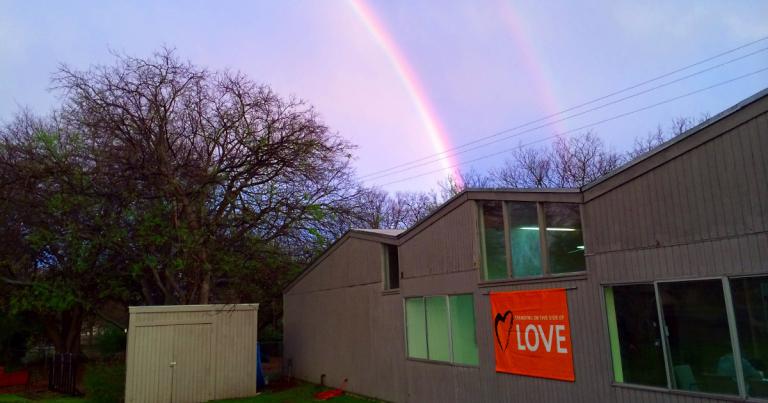I thought I said all I had to say on the Supreme Court and the same-sex wedding cake case last week. But comments and questions keep coming in, suggesting that this needs further exploration.
Again, this is a hard case. And remember that while the ruling was disappointing, it did not say that it’s OK to refuse service to gay people. It said the baker didn’t get a fair hearing. We still have no ruling on the legal principles involved.
Equal accommodation is the law
In the United States, equal accommodation is the law. That means those signs that say “we reserve the right to refuse service to anyone” (which, for those of you not old enough to remember, are a product of the Jim Crow era) are legally meaningless.
If you are a business owner, you get to decide what products and services you will or won’t offer. A Muslim grocer cannot be compelled to sell pork. But if he carries halal beef, he can’t refuse to sell it to a Pagan, even if he thinks it might be offered to Pagan Gods.
You get to choose what you offer. You do not get to choose who you serve.
Religious free exercise is the law too
And free exercise is more than private devotion.
It’s also the right of Sikhs to wear turbans and Wiccans to wear pentacles. It’s the right of Mormons to go on missions.
It’s not an exemption from mundane health and safety regulations – Denton UU had to bring our building up to current codes when we rebuilt after the fire of 2015.
Some people in the majority religion confuse the right of free exercise with using the power of government to promote their religion, which is forbidden under the establishment clause of the Constitution. That’s another legal matter for another day.
Perhaps the most important part of the right of free exercise is protection against being forced to do something that violates your religion. Dietary restrictions must be accommodated, even in prison.
That’s not the same thing as refusing to do your job on religious grounds. The law requires employers to make “reasonable accommodations” for religious employees, but if your religion doesn’t permit you to be around alcohol, Anheuser-Busch isn’t going to be able to accommodate you.
And Kim Davis should have been fired.
You don’t get to decide if someone else’s beliefs are reasonable or sincere. You don’t get to decide if they’re consistent with the rest of their religion. You’re welcome to ask Christians who use the bible to claim homosexuality is a sin if they eat cheeseburgers or shellfish, but in court that’s irrelevant – as it should be. No religion can be fairly judged by an outsider. Which is not to say we can’t judge anyone’s religiously motivated behavior – if it impacts others, we can and we must. But the fact that we find the beliefs and practices of Mormon or Muslims – or atheists – to be unreasonable is not relevant.
Rights in conflict must be balanced
The Masterpiece Cakeshop case is an instance where two competing legal and ethical principles are in conflict. On one hand, we have the gay couple who has a right to equal accommodation in services. On the other hand, we have the baker who has the right to not be forced to do something against his religion.
The case turns on the question of whether a wedding cake for a same-sex marriage is “a cake celebrating same-sex marriage” or if it is simply “a wedding cake.” The first is a political and religious statement which cannot be coerced. The second is a standard product which must be offered to all paying customers. Justices Ginsburg, Sotomayor, Kagan, and Breyer said it’s a wedding cake. Justices Gorsuch, Alito, and Thomas said it’s a religious expression. Justices Roberts and Kennedy refused to say and the case was decided on procedural grounds.
And so the core issue remains unsettled. But there is another question we must consider.

Do you really want a homophobe to bake your wedding cake?
If someone sincerely believes your marriage isn’t really a marriage and thinks what you’re doing is a terrible sin, do you really want him baking your wedding cake? Some of my magically-inclined friends said “I wouldn’t want his energy in my cake.” Others said “I wouldn’t give him a dime of my business – I’ll use my money to support ethical bakeries.”
Ultimately, you can’t make anybody do anything. You can only make the consequences of not doing it unacceptable – something both governments and employers know all too well. And when someone does something with a gun to their head (literally or metaphorically) they rarely do a good job with it.
So what remedy could the court have ordered?
Do we order him to bake the cake and hope it’s not full of “negativity”? Do we throw him in jail if he refuses? I find discrimination to be morally repugnant and there would be a certain satisfaction in literally and violently throwing a bigot into a jail cell. But what would that accomplish? It wouldn’t change the baker’s heart and mind. It would turn him into a martyr for bigots and homophobes everywhere.
It would also set a dangerous precedent for regulating religiously motivated behavior. Will vegans demand the jailing of a santero for sacrificing a chicken? That actually happened – though vegans weren’t to blame – and the courts ultimately upheld the right of sacrifice as a free expression of religion.
If you don’t want your cake baked by an unwilling baker and you don’t want to create a martyr, what resolution is possible?
“Just go somewhere else” isn’t good enough
Several of my libertarian friends said “just go somewhere else.” They don’t want to force or even coerce anybody to do anything. There’s an ethic of non-violence there that I respect.
One on hand, I don’t go where I’m not wanted. If you don’t want my business there are plenty of places that do. But that’s the point – I’m an old straight middle class white guy. Almost everybody wants my business – I have few problems and many options. If you’re gay, poor, an immigrant, or some other minority, you may not have many options.
Religious discrimination is still a problem, something Pagans know all too well. I haven’t experienced much, but see the above comment about “old straight middle class white guy.” The more different a person or group is, the more likely they are to have trouble finding the kind of accommodations most of us take for granted.
Read the story of the Islamic Center of Murfreesboro – “we don’t want your kind around here” is alive and well in the United States.
I would not throw the Masterpiece baker in jail. But neither would I tell the couple he refused to serve “it’s no big deal – just go somewhere else.”
Because this is a big deal. We cannot allow bigotry and homophobia to go unchallenged.
We’re continuously renegotiating society
American culture (really, all of Western culture) is changing at an unprecedented rate. Some of us are enjoying the changes. Some are fighting them. And some are struggling to manage them. But no sooner has one group of disenfranchised, oppressed people made a step toward equality and inclusion than another group has stepped forward and demanded the same.
This is a good thing, even though it has made those at the top of the social structure uneasy. Loss of superiority sometimes feels like oppression, even though it’s simply equality.
We are constantly renegotiating society. 40 years ago same-sex marriage was unthinkable in mainstream society. Now we’re arguing over a cake for a same-sex wedding.
This is not an excuse to “give it time.” Delay has been the ally of bigots at least since Martin Luther King Jr.’s “Letter From A Birmingham Jail,” where he said:
Human progress never rolls in on wheels of inevitability; it comes through the tireless efforts of men willing to be co-workers with God, and without this hard work, time itself becomes an ally of the forces of social stagnation.
Every dispute, every conflict, every misunderstanding is an occasion to continue the renegotiation of society. If we simply let it slide – whether that means meekly going to another baker or deciding a case on procedural grounds instead of on principles – then we vote to continue things as they are and we cast our lot with the white moderates who Dr. King complained are
more devoted to “order” than to justice; who prefer a negative peace which is the absence of tension to a positive peace which is the presence of justice.
I want a tolerant society
I can’t speak for the couple who was denied service. I can only speak for myself.
I want a tolerant society.
I want compassion, acceptance, and celebration, but I’ll settle for tolerance… for now.
As much as I’d like for this baker and everyone like him to be free of fundamentalism, biblical literalism, and other toxic beliefs, most of them won’t consider it. They believe the eternal fate of their souls are dependent on belief in these things. If they genuinely believe homosexuality is a sin, so be it.
But I will not normalize those beliefs, even if they were considered quite normal only a few years ago.
I don’t want to force the Masterpiece baker to bake a cake at gunpoint. I don’t want to punish him for his refusal. I want to isolate his beliefs, so his beliefs will die when he and others like him die.
I will not accept going backwards on equal accommodation laws. No refusing to rent to interracial couples or refusing to sell a birthday cake to a gay person. But if Justice Gorsuch insists, define baking a wedding cake as religious expression and allow bakers to pick and choose which cakes they’ll make and which ones they won’t, like ministers can choose which couples they’ll marry and which ones they won’t.
But I do not ever want another gay couple to walk out of the Masterpiece shop disappointed. Insist he post a sign on the door, on his website, and on all advertising that says “we make wedding cakes for straight couples only.”
We’re never going to change his mind. But we can change the minds of other bakers who are on the fence, especially those whose churches or families promote homophobia but who privately question those beliefs.
The limits of law and our responsibilities
It is the responsibility of the Supreme Court to make hard decisions, especially decisions like this where two important legal principles are in conflict. Because Chief Justice Roberts has a soul (he realizes the impact these cases have on real people) but not a backbone (he’s afraid to challenge the conservative, textualist wing of the court) he fashioned a decision based on procedure (the baker didn’t get a fair hearing, which is true) and ignored the primary issue.
But even when the courts (and the legislatures, though they do more harm than good these days) do their jobs, there is only so much we can accomplish through law. Brown vs. Board of Education was in 1954 and the Civil Rights Act was in 1964, but while we have come a long way we still haven’t eliminated racial discrimination and prejudice from our society.
We have to change society ourselves.
That means even if you’re straight, you don’t patronize businesses that won’t serve LGBTQ customers. You don’t tolerate bigoted “humor.” And since I’ve been mixing in Civil Rights examples, it also means you don’t support policies, institutions, and government officials that kill, jail, and impoverish people of color at vastly disproportionate rates from white people. It means you work to build a society that is fair, just, and compassionate for all.
Philosopher Joseph de Maistre said “every country has the government it deserves.” That may or may not be true, though these days I’m pretty sure it is. But I’m absolutely sure of something else: we get the society we build.
Let’s build a good one.




















